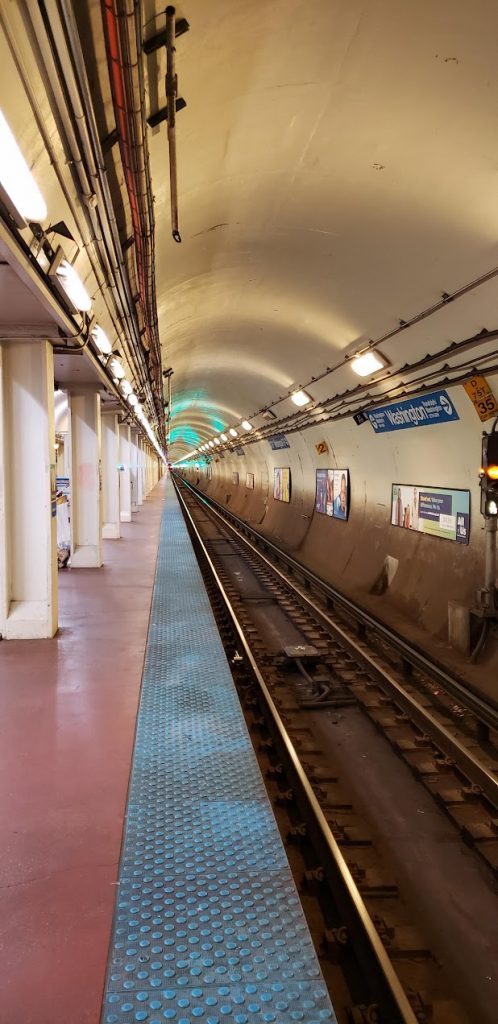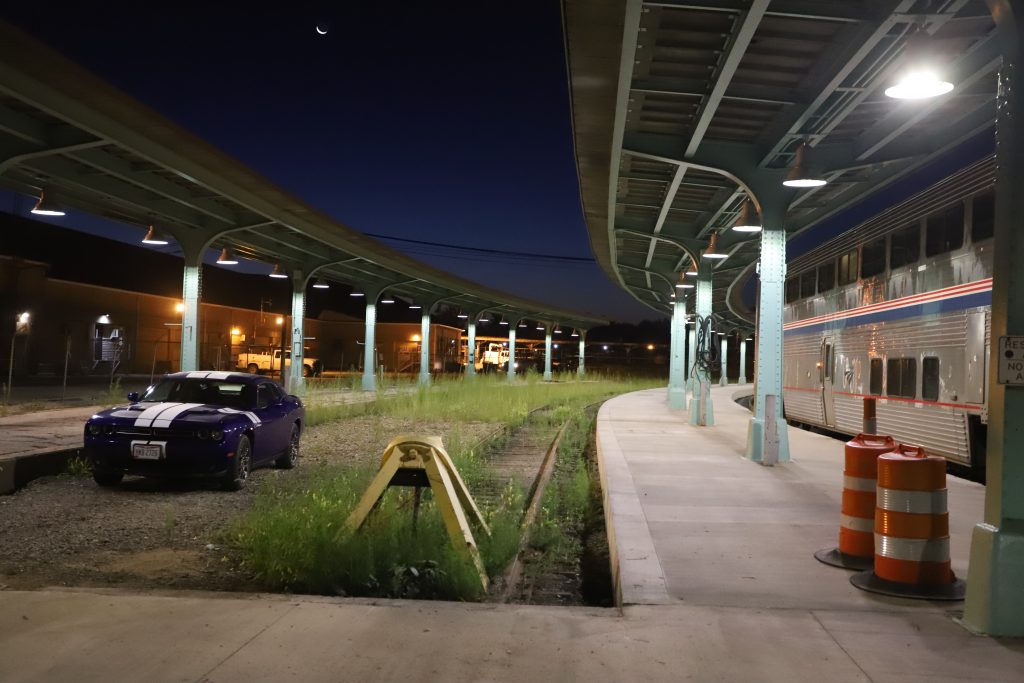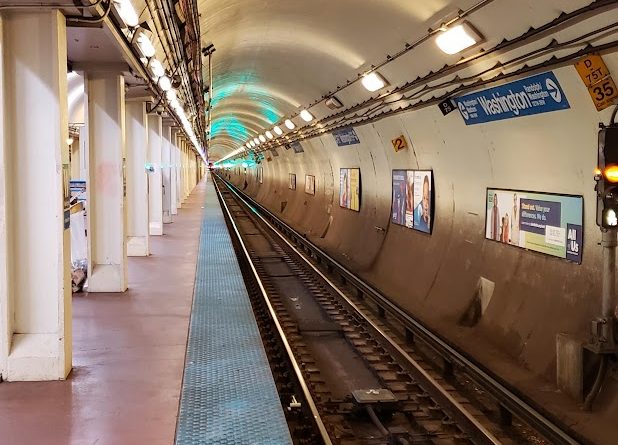Infrastructure: Think Outside The Smartphone-Driven Profit Motive
Yesterday, I attended a panel discussion on Sustainable, Integrated Urban Mobility For Today and The Future hosted by SmartCitiesWorld that featured a mostly-European cadre of mobility professionals and a token American. The conversation talked about active transportation like bikes and walking, and it also talked about micromobility, both from a technical and from a social standpoint. The Yank in question was, of course, Michigan’s Chief Mobility Officer Trevor Pawl, who has made it onto pretty much every webinar, conference panel, and public talk in the past couple of years to talk about– wait for it- cars!
First: it’s not entirely clear to me why Pawl keeps getting these invites beyond the title. He has proven to be an advocate for little other than the automotive industry, even as that industry is struggling against a tidal exodus of talent from the Mitten state, not to mention a current lull in which they went from not being able to sell trucks fast enough to not selling as many trucks because gas prices are closer to what they probably should be if we ever want to reach zero-carbon. Evidently the whole chip shortage– which saw brand new trucks parked in vacant lots all around Metro Detroit for quite awhile- gave way to an even greater surplus of Fords F-150 on the lots of dealerships. And what’s worse for the auto industry and the Mitten state? Apparently, no one wants to live in a state with crumbling infrastructure that still thinks that cars are the only way to get around.



Phones and Profit
At one point, Pawl was asked about the most significant roadblocks, pun intended, to sustainable mobility. His answers were somewhat mystifying but telling. He gave two key issues that hindered the development of sustainable mobility systems in the state of Michigan. They were:
- “Limited smartphone adoption.”
- “Inability to make profit in mobility systems.”
These two answers should alarm anyone who is remotely interested in sustainability, mobility, urban transportation systems, or, in considering Pawl’s stature as a highly visible, unelected public figure, plus, generally, in considering public service and how it can be used to make the world a better place. Or, you know. Not that.
Let’s check it out:
- This one was a doozy. According to Pew, 97% of Americans own a cell phone, while 85% reported specifically owning a smartphone. The former number has more than doubled since the turn of the millennium, while the latter has more than doubled in a decade. It’s true that smartphone ownership in lower-income segments is much lower– but it’s still more than three quarters of all people. Are people not riding the bus because they can’t use their smartphone to tap-to-ride with NFC? Absolutely not– although that hasn’t stopped transit providers and mobile payment vendors from pushing these mobile platforms, which can indeed improve the ease of fare collection.
- The point about the inability to make profit is peculiar, but it’s worth unpacking a bit. Transit systems aren’t meant to make money. COVID had disastrous effects on public transit ridership, especially for agencies with high farebox recovery ratios like BART or the MTA in New York. These effects have lingered even after extensive research has shown a relatively low risk of COVID infection on mass transit. But Trevor, if you think the profit potential for novel mobility systems is low, wait til you hear about highways!
Am I missing something that I don’t think that we should be solely thinking about smartphone apps and profitable proofs-of-concept when thinking about how to improve our transportation systems? How much have those multi-billion dollar tax breaks to the automotive industry that even the arch-conservative Supreme Court of Michigan says the state has to disclose some more information about? Have those trickled down to improve the frequency of bus service?
Beyond The Car Governor
I’ve mentioned this before, but I remember a quote from one of the 82 interviews I conducted for my thesis research. One Southeast Michigan infrastructure nerd– a PhD who left Detroit after getting a better job offer elsewhere- lamented that Governor Whitmer doesn’t really seem to care about cities, and certainly doesn’t seem to understand them. This was a bummer to hear, but it was so true. It’s something I picked apart in obnoxious detail when I did a sort of meta-analysis of media publications coming out of the Michigan Department of Transportation– whose abolition I later proposed somewhat jokingly at a Michigan Association of Planning conference to the chagrin of the organization’s dispassionate and conservative staff- and found only parenthetical mention of transit.
This isn’t meant to be a polemical piece. There are plenty of constructive ideas to come out of this. For example, there’s an idea that has stuck with me from my thesis-writing days, from a book on the birth of the autonomous vehicle. The author pointed out that all of these clever software ideas were coming out of Silicon Valley. He notes that the Big Two and a Half, as I call them, were pretty late to the game. These companies are conservative and they move very slowly. (I never quite understood how or why companies can be this slow until I worked for a public utility company!). But what became apparent, the author noted, was that Silicon Valley needed to figure out how to scale autonomous pilots, and they needed people to actually build the cars.
Those people are in the Midwest, where a century of manufacturing engineering ingenuity is ready to produce stuff. But we can’t simply produce our way out of any crisis by building more trucks.
Needing A Governor Who Understands Cities– And Will Commit To Them
Capitalism currently faces two existential threats that have absolutely nothing to do with the Republican allegations of the Radical Marxist Socialist New World Order Baby-Killing BLM Antifa George Saros [sic] funded Democrat Agenda. One such threat is that of climate change, which we’re seeing play out in the form of, variously, extreme temperatures, and, a few steps removed from climate change itself, the economically destructive effects of high gas prices on the economy. The other problem is that of a slowing rate of growth in western economies. Populations are aging, but increasingly reactionary policies restrict immigration to create a new labor supply and new growth.
Fixing mobility requires fixing cities. It doesn’t require smartphones. Nor does it require creating new markets simply so people can profit. The government’s role should be to stimulate economic growth and competition– not simply to create new venues for colonial exploitation. This can be done through real infrastructure investment. It doesn’t require a smartphone and it doesn’t require a profit motive. Leave the profit motive to entrepreneurs and companies, but let the entrepreneurs and companies work– in a market with well-developed, real infrastructure. Trevor Pawl and Governor Whitmer: We must do better. The state’s future depends on it.
The state’s professional credibility also depends upon the ability of people like Mr. Pawl to be able to say things other than “tech and cars” as far as how to reach a future of equitable, sustainable mobility.




